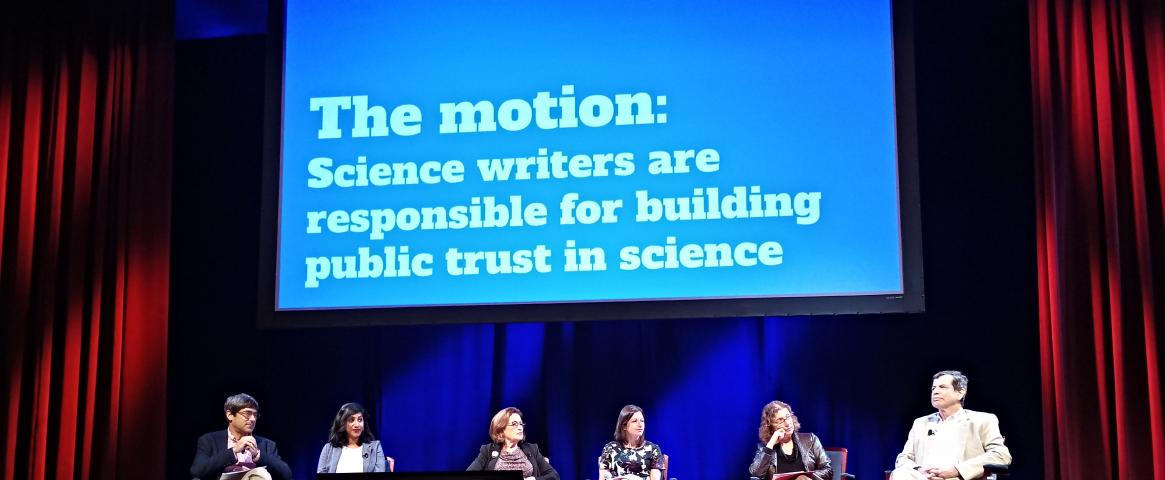By Matt Blois
Politicians and celebrities who doubt the credibility of science can undermine the scientific process and encourage the public to stop trusting scientists.
Science writers can play a role in building public support for science, but is that their responsibility? That was the question at the plenary meeting of ScienceWriters 2018 on Saturday October 13.
Two teams of science writers debated the topic in front of a live audience. Much of the debate revolved around the differences between covering science as a journalist and communicating science for an institution.
NPR's Richard Harris and Buzzfeed's Nidhi Subbaraman argued that science writers are not cheerleaders for science. They said it's their job to tell the public what's happening in science whether or not that builds public trust.
"Our role is to report fiercely and fairly on the institution itself," Subbaraman said. "The enterprise and its actors through their actions and record must earn our trust themselves."
Science communicators Louise Lief and Rick Weiss argued that science writers shouldn't avoid writing stories that show the failures of science, but encouraged writers to look for ways to build trust in the process of science.
"Your job is not to hide the problems," Lief said. "The ultimate goal is the appreciation of and support for the systematic approach to knowledge and discovery that science represents when it's at its best."
At the start of the debate, about 60% of the audience agreed that science writers are responsible for building public trust in science. By the end, that number had dropped to about 40%.
Harris and Subbaraman focused on the science writer's role as a watchdog. A member of the audience — the freelance writer Jill Adams — asked the debaters whether political reporters are responsible for building public trust in democracy. Harris picked up the analogy and ran with it.
"Are sports writers responsible for building trust in sports? How about business writers, are they responsible for building public trust in businesses? I think not," Harris said. "What makes us different as science writers? I argue there is no difference."
Weiss called that a bad example because he said science is about pursuing absolute truth, while democracy isn't.
Science writers have an obligation to tell true, compelling stories about science, but Harris said journalists, public information officers and other communicators often have different goals.
Despite those differences, Harris and Subbaraman pointed out that building public trust is often a byproduct of good reporting. On that point, both sides seemed to agree.
"In the very long run it is important for science to recognize its own flaws and for us to help them recognize those flaws," Harris said, "so that we as taxpayers get our money's worth and progress in science accelerates."




